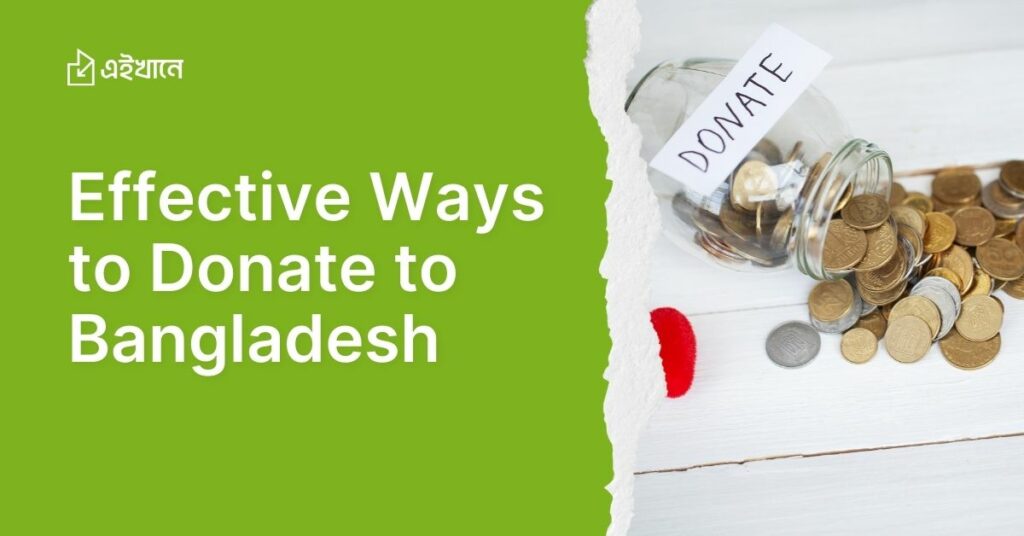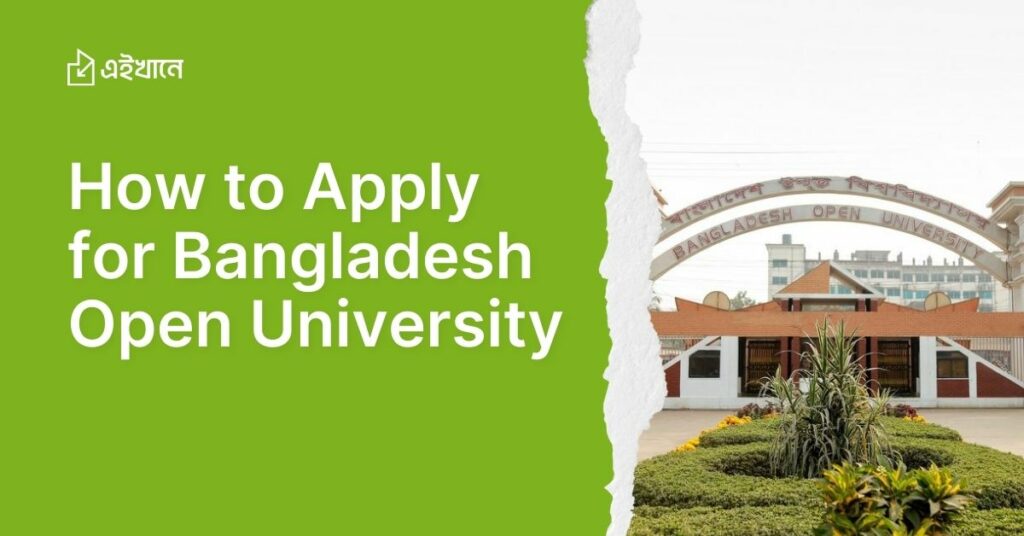10 Trusted Organizations That Help Deliver Aid to Bangladesh’s Most Vulnerable
1. BRAC
BRAC, one of the world’s largest non-governmental organizations, is a cornerstone in Bangladesh’s development sector. With programs ranging from education and healthcare to financial inclusion, BRAC continues to address the needs of the most vulnerable communities, including those affected by natural disasters, poverty, and social inequities. Donating to BRAC ensures your contribution supports a wide range of critical services.
2. UNICEF Bangladesh
UNICEF has been a key player in ensuring that vulnerable children in Bangladesh receive life-saving support. From providing access to clean water and sanitation to delivering educational materials and advocacy on child protection, UNICEF makes a profound impact. Donations to UNICEF ensure that children in impoverished or crisis areas receive consistent care and resources for their growth and safety.
3. ActionAid Bangladesh
ActionAid works with communities in Bangladesh to fight poverty, hunger, and inequality through long-term sustainable development projects. They focus on women’s rights, education, disaster preparedness, and climate justice. ActionAid consistently delivers grassroots aid that empowers local people to drive change, making it a trusted choice for donors.
4. Islamic Relief Bangladesh
Islamic Relief has provided humanitarian assistance to Bangladesh for decades. They specialize in emergency relief, such as during cyclones and floods, while also supporting long-term projects like housing, education, and microfinance initiatives. Donations to Islamic Relief help address immediate needs during crises as well as sustainable development.
5. Save the Children Bangladesh
Save the Children has been operational in Bangladesh since 1970, providing vital support to children facing hunger, disease, and displacement. The organization’s work spans health, nutrition, child protection, and education. By donating to Save the Children, you directly contribute to improving the lives of the country’s youngest citizens.
6. CARE Bangladesh
CARE Bangladesh has been instrumental in tackling extreme poverty, with a particular focus on women and children. Through programs that cover food security, maternal healthcare, and disaster response, CARE delivers practical, life-changing solutions to some of the most challenging issues facing vulnerable communities. Your donation helps sustain these essential programs.
7. World Vision Bangladesh
World Vision works to uplift vulnerable families and children in Bangladesh by providing food, education, and general welfare. They are known for their child sponsorship program, which connects donors to children in need. Contributions to World Vision go toward building a brighter future for disadvantaged families, empowering them to break the cycle of poverty.
8. Red Crescent Society of Bangladesh
As part of the broader Red Cross network, the Red Crescent Society operates heavily in disaster-stricken regions of Bangladesh, providing expert emergency relief and long-term recovery plans. With expertise in disaster preparedness and medical support, this organization is often first on the ground when natural calamities hit. Your donations help provide first-response services and longer-term aid.
9. Oxfam Bangladesh
Oxfam in Bangladesh focuses on creating sustainable livelihoods, tackling climate change, and promoting gender equality. They work with local partners to address inequality and build resilience in rural communities. A donation to Oxfam helps fund vital programs that are both impactful and empowering for vulnerable populations.
10. Friendship NGO
Friendship NGO provides essential healthcare, education, and climate adaptation services to marginalized communities in remote riverine areas of Bangladesh. Known for their floating hospitals and climate-resilient practices, Friendship reaches populations that other organizations may struggle to serve. Donating to Friendship means supporting innovative approaches to addressing the unique challenges faced by isolated communities.
How to Maximize Your Charitable Impact: A Guide to Donating in Bangladesh
Research the Needs and Prioritize Your Goals
Before donating, it’s essential to understand the specific needs of the community or cause you want to support. Bangladesh faces numerous challenges, including poverty, natural disasters, healthcare shortages, and climate change. Each organization may specialize in addressing different issues, so allocating your funds to align with your values and priorities ensures that your donation has the maximum impact. For instance, if you’re passionate about education, prioritize organizations with a track record in improving schooling access or quality.
Donate to Local Organizations with a Proven Impact
While international NGOs often have extensive networks and resources, local Bangladeshi organizations may have a deeper understanding of the specific needs of their communities. Groups like BRAC and Friendship NGO are based within Bangladesh and run by locals who are well-versed in on-the-ground realities. Supporting such organizations can amplify the impact of your donation, as they can utilize their community insight to deliver aid more efficiently and effectively.
Consider Long-Term vs. Immediate Relief
When deciding how to allocate your charitable contributions, it’s crucial to balance between immediate relief efforts and long-term development programs. In Bangladesh, emergencies like floods and cyclones frequently require rapid response efforts from organizations like the Red Crescent Society and Islamic Relief. However, consistent donations to groups focused on sustainable development, such as Oxfam Bangladesh or CARE Bangladesh, ensure that your contributions foster ongoing growth and resilience against future crises.
Leverage Matching Donations and Corporate Giving
Many companies offer matching donation programs where they will match the charitable contributions made by their employees. This can effectively double your impact at no extra cost to you. Research whether your employer provides such opportunities and take advantage of these initiatives when donating to causes in Bangladesh. Additionally, some organizations may also collaborate with corporate partners for fundraising events, allowing even modest contributions to have a greater effect.
Donate Regularly, Not Just During Crises
Donating consistently rather than only during times of disaster ensures that organizations have the resources needed to implement sustainable programs. Emergency donations play a vital role, but predictable recurring donations allow groups like World Vision Bangladesh and Save the Children to plan more effectively for the long term. By setting up a regular contribution, even small amounts can make a significant difference over time in combating systemic poverty and injustice.
Evaluate the Effectiveness of Your Donations
It’s important to consistently evaluate the effectiveness of your donations to ensure they are making a meaningful impact. Many organizations provide transparency reports, outlining how funds are used and the measurable outcomes of their programs. Reviewing these documents can help you refine your giving strategy. For instance, you could decide to direct more funds toward organizations whose projects have produced tangible positive changes, such as improvements in child education rates or successful disaster recovery efforts.
Encourage Others to Contribute
Amplify your impact by encouraging friends, family, or colleagues to contribute to the same cause. Social media platforms and crowdfunding tools can help spread awareness about the pressing needs in Bangladesh and motivate a broader network of donors. Consider organizing a fundraising event or sharing success stories of organizations you’ve supported. Collective giving can increase the total amount raised and significantly multiply the benefits for communities in need.
Explore Non-Monetary Ways to Give
If your funds are limited, there are other valuable ways to support charitable organizations in Bangladesh. Volunteering your time, spreading awareness, or donating goods like food, clothing, or medical supplies can all contribute positively. Some organizations also accept professional expertise, where skills like digital marketing, education, or project management can bolster their efforts. Non-monetary contributions can still have a profound and lasting impact on the communities you’re aiming to help.
Direct vs. Indirect Aid: Understanding the Best Ways to Support Bangladesh
What Is Direct Aid?
Direct aid refers to immediate, tangible assistance provided to individuals and communities in need. This can include distributing food, medical supplies, emergency shelter, or cash transfers directly to those affected by crises such as floods, cyclones, or poverty-related emergencies. Direct aid is typically most effective in situations requiring immediate relief, where people’s basic needs must be urgently met. In Bangladesh, organizations like Islamic Relief and the Red Crescent Society excel at providing direct aid following natural disasters, making donations to these groups crucial when swift action is needed.
What Is Indirect Aid?
Indirect aid focuses on building long-term resilience by supporting infrastructure, education, healthcare systems, and livelihood opportunities. Rather than providing short-term relief, indirect aid works to address the root causes of poverty and vulnerability through sustainable development programs. For example, organizations like BRAC and Oxfam Bangladesh focus on empowering communities through education, job training, and advocacy for gender equality. Donations to these groups help ensure that communities can become self-sufficient and better equipped to handle future challenges.
When to Choose Direct Aid
Donors should prioritize direct aid in cases of acute crises, such as when Bangladesh is struck by a natural disaster. During floods or cyclones, affected people may lose homes, access to clean water, and food security, making immediate relief a priority. By donating to organizations specializing in rapid response—such as Save the Children and the Red Crescent Society—your contributions will have a quick, lifesaving impact. Direct aid is especially effective when time-sensitive interventions are necessary to prevent worsening conditions.
When to Choose Indirect Aid
Indirect aid is best suited for tackling systemic issues over the long term. If your goal is to create lasting change in Bangladesh, focusing on indirect aid can yield the most significant results. For example, investing in education, healthcare, or women’s empowerment initiatives through organizations like CARE Bangladesh and ActionAid provides communities with the tools to improve their living conditions independently. Donations aimed at indirect aid also help build resilient communities capable of handling future crises without relying entirely on external support.
The Importance of a Balanced Approach
A balanced approach between direct and indirect aid can maximize the impact of your donation. While immediate relief is essential in times of crisis, long-term solutions are necessary to break the cycle of poverty and vulnerability in Bangladesh. Donating to a combination of organizations that specialize in both forms of aid ensures that you are not only addressing urgent needs but also contributing to sustainable development. This hybrid model can offer the most efficient route to creating meaningful and lasting change in vulnerable communities.
How Organizations Combine Both Types of Aid
Many organizations in Bangladesh implement both direct and indirect aid efforts, blending immediate relief with long-term projects. For instance, Islamic Relief provides emergency assistance during disasters, while also working on housing and education programs for ongoing community development. Similarly, BRAC’s holistic approach combines healthcare and financial services that meet urgent needs while promoting self-reliance. By donating to multi-faceted organizations like these, you can support efforts that address the full spectrum of humanitarian needs in Bangladesh.
Emergency Relief in Bangladesh: Where Your Donations Make the Most Difference
Responding to Natural Disasters
Bangladesh is one of the most disaster-prone countries in the world, frequently experiencing devastating floods, cyclones, and coastal erosion. Immediate relief efforts must be mobilized swiftly after these events to prevent loss of life, and provide food, water, shelter, and medical care to those affected. Organizations such as the Red Crescent Society and Islamic Relief are at the forefront of delivering emergency assistance during these critical moments. Donating to these groups ensures that your contributions are providing essential supplies and on-the-ground support when it is needed the most.
Supporting Refugee Populations
Bangladesh has also become home to a large number of refugees, particularly the Rohingya people who fled persecution in Myanmar. Refugee camps in Cox’s Bazar and surrounding areas face severe shortages of food, clean water, and healthcare services. Donations to organizations like UNICEF and Save the Children can make an immediate impact by providing necessary aid to these vulnerable populations. Whether through child protection services, education programs, or health clinics, your funds help improve the living conditions for thousands of displaced individuals.
Providing Emergency Healthcare
Access to healthcare becomes especially critical during emergencies, where hospitals may be overstretched or inaccessible due to flooding or other disasters. Urgent medical needs, from treating injuries to preventing disease outbreaks, must be met quickly. BRAC and Friendship NGO work tirelessly to deliver mobile healthcare solutions, such as floating hospitals or temporary medical centers, to reach isolated communities in times of crisis. By donating to these organizations, you are enabling rapid medical intervention that can mean the difference between life and death for many.
Ensuring Food Security During Crises
Food insecurity is a major issue during emergencies in Bangladesh, especially when extreme weather disrupts agriculture and supply chains. Many families lose their crops or livestock, leaving them without reliable sources of nutrition. Organizations like CARE Bangladesh and ActionAid work on food distribution programs to ensure that families do not go hungry during crisis periods, while also helping rebuild agricultural infrastructure post-disaster. Contributions to these organizations help deliver essential food supplies and long-term recovery solutions to impacted communities.
Rebuilding Homes and Infrastructure
In the aftermath of a disaster, rebuilding homes and critical infrastructure is vital for returning communities to stability. Cyclones and floods often destroy housing, leaving people without shelter for extended periods. Islamic Relief and World Vision work on both emergency housing solutions and long-term reconstruction projects, ensuring that displaced families have safe places to live. Donating to these organizations helps supply immediate shelter while contributing to the more extensive work required to rebuild entire villages and towns.
Promoting Disaster Preparedness
While emergency relief saves lives in the short term, investing in disaster preparedness is key to reducing the devastating impacts that future crises have on communities. Organizations like Oxfam and BRAC focus on building resilience by training local communities in risk reduction and emergency response protocols. These programs include early warning systems, community shelters, and evacuation plans, all designed to mitigate losses in future disasters. Your donations help fund these proactive measures, ensuring that more people are better protected when the next emergency strikes.
Delivering Aid to Hard-to-Reach Areas
In disaster situations, many of Bangladesh’s most vulnerable populations live in remote areas that are difficult to access, especially when roads and communication lines are damaged. Friendship NGO is known for its innovative techniques in reaching these isolated regions, using floating hospitals or boats to deliver aid where others may not be able to. Donating to organizations specializing in this type of targeted aid ensures that no communities are left behind in times of crisis, especially those living in the hardest-hit and most marginalized areas.
Digital Platforms and Mobile Banking: Modern Solutions for Donating to Bangladesh
The Rise of Digital Payment Platforms in Charitable Giving
In recent years, the advent of digital payment platforms has revolutionized the way donors can contribute to charitable causes worldwide. For those looking to support initiatives in Bangladesh, platforms like PayPal, Google Pay, and Stripe provide an easy and secure way to donate directly to organizations. Many NGOs working in Bangladesh have integrated these systems into their websites, allowing international donors to quickly transfer funds without needing to navigate complex banking systems. This streamlined approach enables individuals to contribute efficiently, often with just a few clicks, from virtually anywhere in the world.
Mobile Banking: A Local Game Changer
In Bangladesh, mobile banking solutions like bKash and Nagad have become increasingly popular, enabling locals and international donors alike to send money easily through mobile phones. These services allow for real-time transfers and have partnerships with several NGOs that operate within the country. By donating through mobile banking, you not only avoid expensive wire transfer fees but also ensure that your contribution reaches intended recipients rapidly. Mobile banking has been especially useful in times of disaster, where speed and accessibility are critical to delivering aid effectively.
How to Set Up Recurring Donations via Digital Platforms
One of the major advantages of using digital platforms or mobile banking for donations is the ability to set up recurring contributions. Many organizations in Bangladesh offer options on their websites where donors can make automated monthly or yearly payments, ensuring consistent support for ongoing projects. This is made possible through digital platforms like PayPal or bank-linked apps. By setting up recurring donations, you help organizations plan ahead and allocate resources more efficiently, leading to increased long-term impact.
Ensuring Security and Transparency in Digital Donations
Security is a top concern when making online donations, but most reputable organizations use encrypted payment gateways to protect your financial data. Additionally, many platforms offer tracking tools that provide detailed receipts and updates, ensuring transparency on how your donation is spent. Companies like bKash and PayPal have strict security protocols, reducing risks such as fraud or unauthorized transactions. Before donating, it’s advisable to check the organization’s credentials and ensure they have proper security measures in place. This ensures peace of mind as you contribute towards meaningful causes in Bangladesh.
Benefits of Using Mobile Technology for Crisis Donations
When disaster strikes in Bangladesh, every second counts. Mobile technology allows organizations to react swiftly, thanks to instant fund transfers facilitated by mobile banking and payment platforms. Whether it’s sending funds via bKash after a devastating cyclone or using online platforms for crowdfunding, these tools empower donors to provide rapid support during crises. The speed and convenience afforded by mobile donations make them particularly effective during emergencies, ensuring people receive vital supplies—like food, water, or medicine—when they need them most.
Supporting Local Economies Through Digital Payments
By choosing to donate through local mobile banking platforms like bKash, you’re not only helping charities but also bolstering the digital economy within Bangladesh. These platforms employ workers, improve digital literacy, and encourage economic growth through technology. As you donate, your contribution indirectly supports these parallel sectors, promoting sustainable development practices. More people gain access to banking services, which, in turn, leads to greater financial inclusion across the country.


